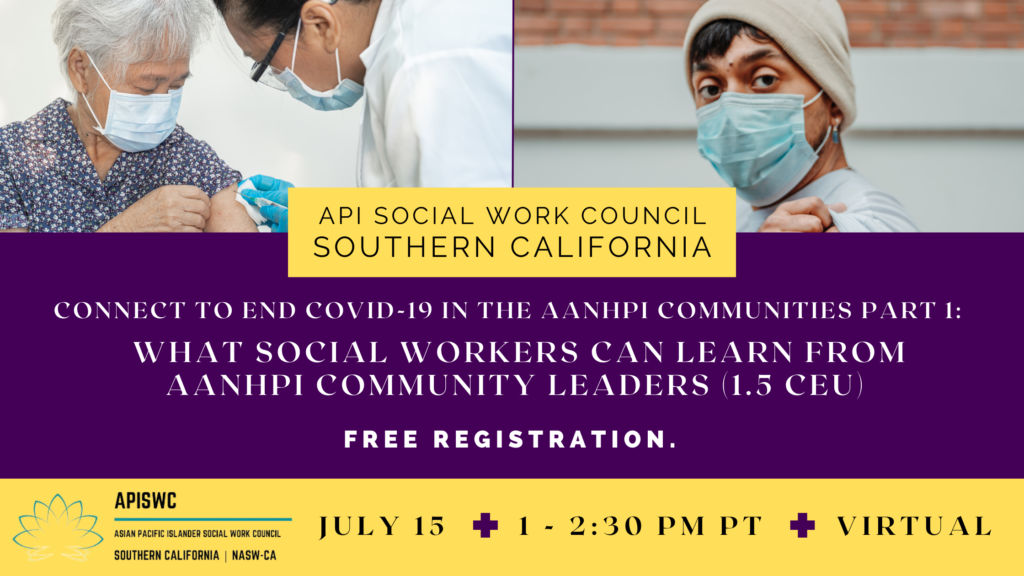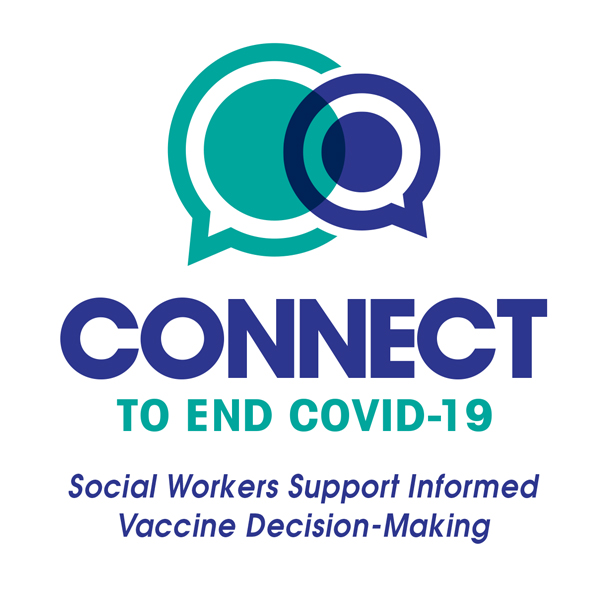
The API Social Work Council Southern California invites you to a free two-part webinar on effective outreach and educational intervention strategies for the Asian American Native Hawaiian and Pacific Islanders (AANHPI) community. Part one of this webinar series will highlight community-based organizations’ efforts to raise awareness and promote COVID-19 vaccine series among the AANHPI communities. We will discover how social workers can apply those strategies to their respective practice settings. Join us on July 15 to learn how to promote COVID-19 vaccine series in diverse AANHPI communities.
The Connect to End COVID-19 initiative aims to provide accurate information to social workers about COVID-19 and the COVID-19 vaccines, including vaccine safety and effectiveness, barriers to vaccination (e.g., mis/disinformation, logistical challenges, psychosocial and social care considerations, etc.), and the role of social workers in supporting clients in informed decision making regarding COVID-19 vaccination.
Learning objectives:
- Learn community-based efforts to raise awareness of COVID-19 vaccine series and promote vaccine uptake in diverse AANHPI communities so social workers can adapt and apply those community outreach efforts in their roles
- Gain at least three communication strategies that have been found effective to promote understanding and awareness of COVID-19 vaccine series in diverse AANHPI communities
- Understand at least two structural and socio-cultural barriers for the AANHPI communities members to accessing COVID-19 vaccine series so social workers can work to address those barriers with their clients of AANHPI backgrounds
Please contact Lucia Romo at lromo.naswca@socialworkers.org with any questions.
The Connect to End COVID-19 initiative is supported by the Centers for Disease Control and Prevention of the U.S. Department of Health and Human Services as part of a financial assistance award totaling $3.3 million with 100 percent funded by CDC/HHS. The contents are those of the author(s) and do not necessarily represent the official views of, nor an endorsement by, CDC/HHS, or the U.S. Government.












